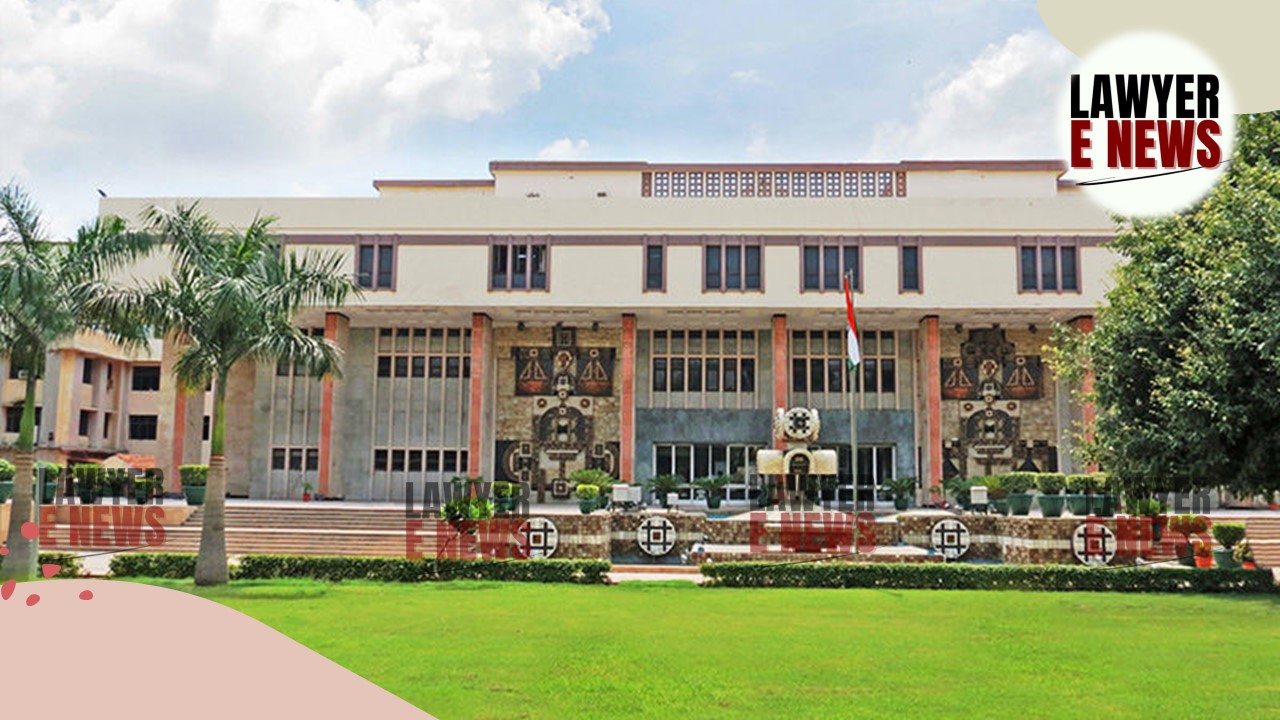-
by Admin
15 February 2026 2:36 AM



In a judgment delivered on September 6, 2024, the Delhi High Court quashed the Look-Out Circular (LOC) issued against Mr. Jagadish Nangineni, Managing Director of Sobha Limited. The court held that the LOC, issued by the Enforcement Directorate (ED) in connection with alleged money laundering, was unwarranted as the petitioner had fully cooperated with the investigation and there was no credible evidence to suggest that he posed a flight risk. Justice Neena Bansal Krishna’s decision underlined the need for careful adherence to guidelines in issuing LOCs, especially when they infringe on an individual's right to travel.
The petitioner, Mr. Jagadish Nangineni, joined Sobha Limited in 2009 and became its Managing Director in 2022. In December 2018, an FIR was registered against Sobha Limited and others for alleged violations of the Haryana Development and Regulation of Urban Areas Act, 1975, and Section 420 of the Indian Penal Code. Based on this FIR, the ED launched an investigation under the Prevention of Money Laundering Act (PMLA), leading to the issuance of a Look-Out Circular in 2021 against Mr. Nangineni.
Despite Mr. Nangineni’s regular cooperation with investigative authorities, the LOC was renewed twice, restricting his ability to travel abroad for professional reasons. The petitioner challenged the legality of the LOC in the Delhi High Court, asserting that it violated his constitutional rights and was contrary to the anticipatory bail granted by the Supreme Court in 2022.
The High Court took into account the petitioner’s consistent cooperation with investigative authorities, including appearing more than 14 times before the ED. "The petitioner has joined investigations, is not evading the process of law, and there is no likelihood of him leaving the country to evade trial," noted the court. This demonstrated his commitment to the legal process, undermining the basis for issuing an LOC.
The Court emphasized that the issuance of an LOC imposes a significant restriction on personal liberty, particularly the right to travel, as guaranteed under Article 21 of the Indian Constitution. The court remarked that “issuance of an LOC, in this case, amounts to an unreasonable curtailment of the petitioner’s personal liberty,” and such action must be supported by substantial evidence that the individual is likely to evade the process of law, which was not the case here.
Justice Neena Bansal Krishna pointed out that there was no concrete evidence to suggest that Mr. Nangineni posed a flight risk. The petitioner had deep ties to India, including his residence, employment, and family, all of which indicated that he was not attempting to flee. Additionally, he had previously been permitted by the court to travel to Dubai for professional reasons without violating any conditions.
"The petitioner has been duly cooperating with the Investigating Agency by furnishing the requisite documents and responding to queries raised by the Respondent No. 1/ED," the judgment noted. Further, it was observed that "none of the grounds for continuing the LOC continue to exist."
The court relied on the principles established in the landmark case of Sumer Singh Salkan v. Assistant Director (2010), which set out the conditions under which an LOC can be issued. The decision reiterated that an LOC can only be issued if the accused is deliberately evading arrest, not appearing in court despite non-bailable warrants, or there is a likelihood of fleeing the country to evade trial. In this case, the court found that none of these conditions applied to Mr. Nangineni, thereby making the issuance and continuation of the LOC unjustified.
By quashing the LOC, the Delhi High Court reinforced the principle that restrictions on personal liberty must be imposed cautiously and only when necessary. The court’s decision not only allowed Mr. Nangineni to travel for professional purposes but also underscored the importance of safeguarding individual rights against arbitrary administrative actions. The judgment is expected to have a significant impact on the issuance of LOCs in future cases, particularly in economic offenses where cooperation with the investigation is evident.
Date of Decision: September 6, 2024
Jagadish Nangineni v. Directorate of Enforcement and Ors.
